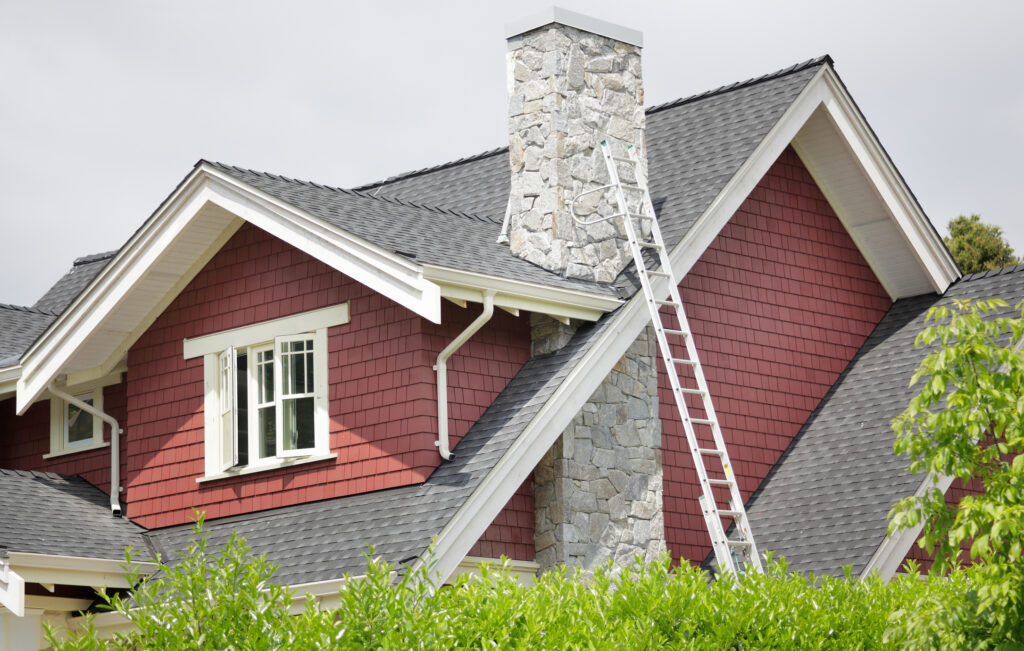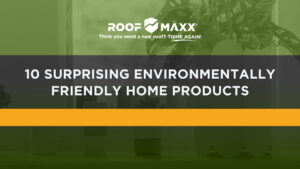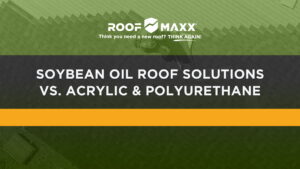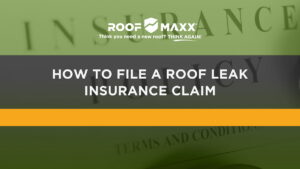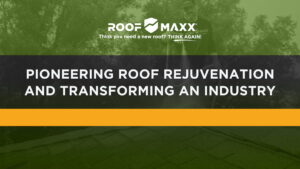Summary:
- Replacing your roof can be costly, but alternatives like repairs, partial replacements, and sealants can extend the life of your roof for less. Roof Maxx’s eco-friendly plant-based oil treatment restores moisture and flexibility to aging shingles.
- Fixing leaks, upgrading ventilation, and using reflective coatings can prevent heat and moisture damage, which slows down aging. Simple upgrades like these postpone the need for a full roof replacement.
- Metal overlays, ridge cap repairs, and removing algae or moss are budget-friendly and can help strengthen your roof. Other alternatives, like synthetic slate or green roofs, focus on reducing costs and improving durability.
- If your roof is nearing the end of its life—or is severely damaged—you may be unable to avoid replacement altogether. Roof Maxx can help you buy up to 15 years, reducing environmental waste and taking pressure off of your budget.
Roof replacements are one of the most expensive investments you’ll experience as a homeowner. Even materials that last decades likely need replacement at least once in the home’s lifespan. However, total replacement isn’t the only solution when your roof begins to experience issues because of age. You may not need to replace your roof yet.
Many roof replacement alternatives are available at a fraction of the price, so you can extend the life of your roof without overextending your budget. Depending on the problems your aging roof causes, you may experience relief from repairs, upgrades, or protective sealants, among other solutions.
Read on to learn more about the cost-effective solutions available to you.
Read more: 7 Important Things to Consider Before Replacing Your Roof
What Are My Roof Replacement Alternatives?
Depending on your roof and its issues, you have many alternatives to choose from. Some options you can invest in now, even before your roof shows signs of damage or age. When used with proper maintenance care, these options can give you the best roof life possible—even extending its life by years.
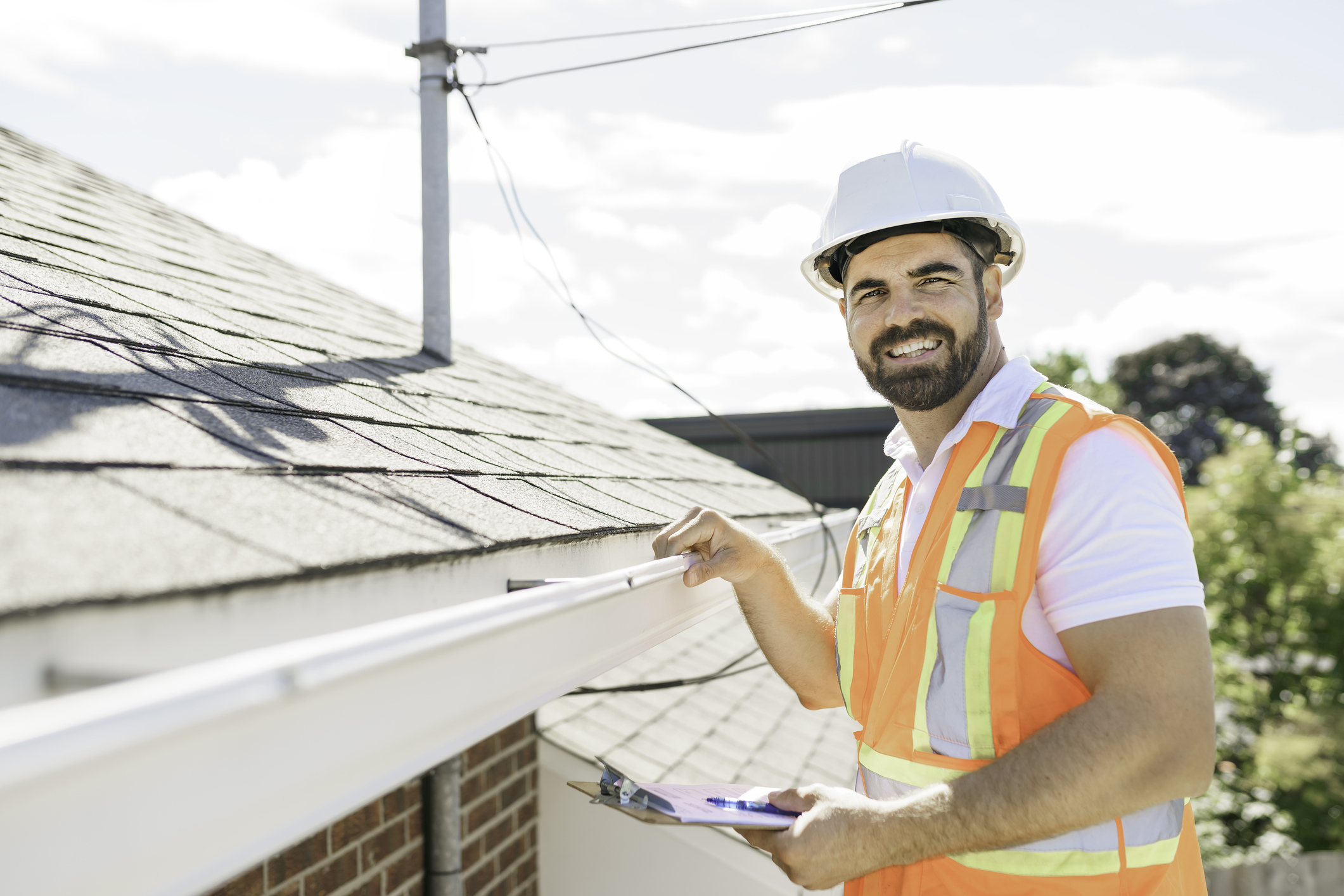
1. Roof Repair
If your roof is damaged, you might consider roof repair. Damaged gutters, chimneys, or vents can cause problems elsewhere. Have these components inspected and repaired, if necessary.
You may also need to repair individual shingles, tiles, or patches. Damage from time or a weather event may unevenly wear roofing materials. For example, the south-facing section of your roof may have heat damage in spots that are most exposed to the sun throughout the year. Your roof may have sections more prone to water damage from tree branch runoff, or a storm may have damaged only one side of your roof.
If a significant percentage of your shingles are intact, you may only need to repair smaller sections of the roof rather than replace the whole thing.
2. Roof Leak Repair
A leaky roof can be devastating, and its damage usually isn’t limited to the roof. If you’re considering roof replacement because of a leak, you should gather more information before you make your decision.
Most leaks do not compromise the entire roof—at least not at first. If you act right away, you can patch it or perform other minor repairs. Most roof leaks happen in already vulnerable areas of the roof, such as seams or places where vents are installed. Damaged stop flashing or dried caulking is often the culprit. Maintain or repair these areas for a longer-lasting roof.
Read more: 10 Causes of Roof Leaks (& How to Identify Them)
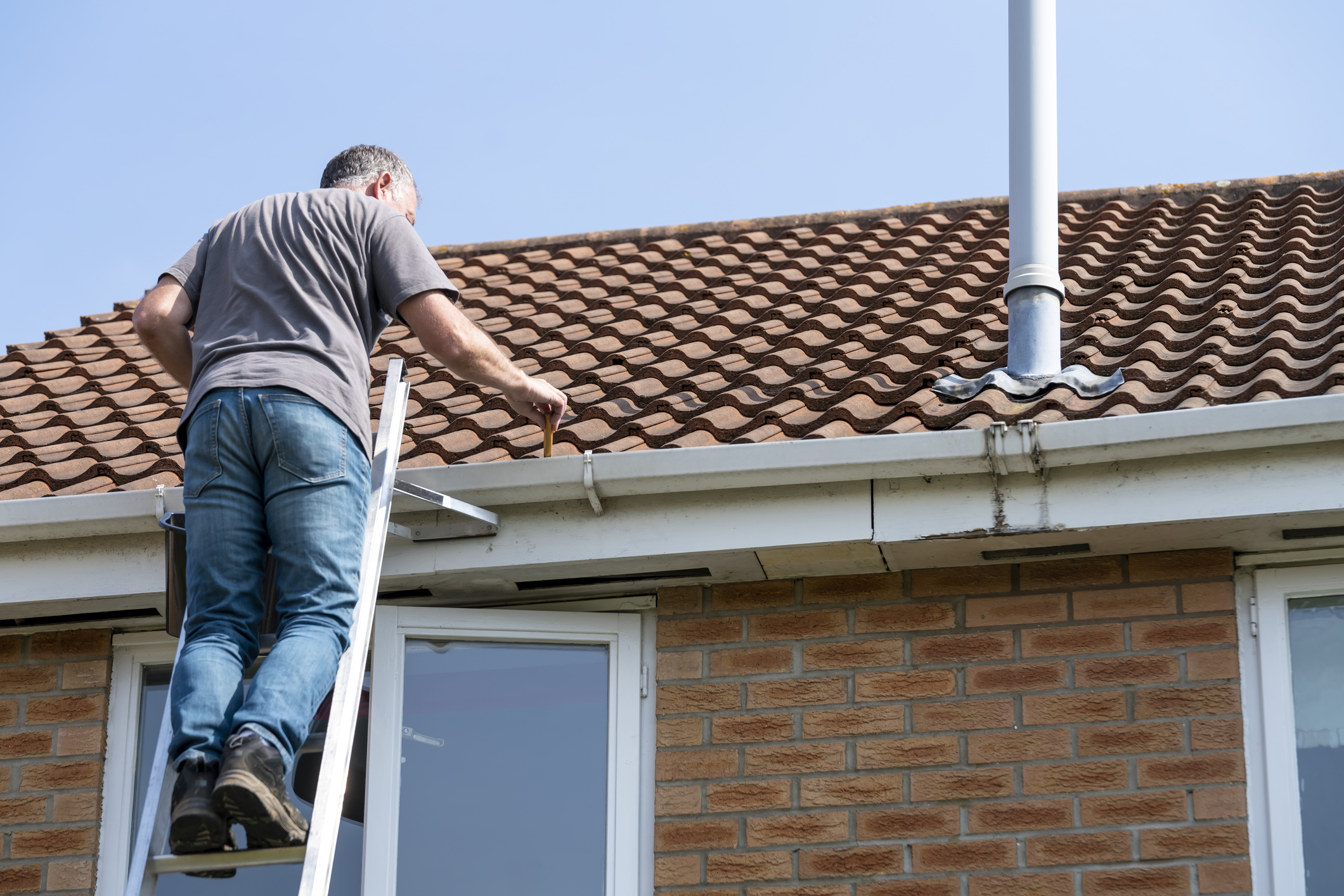
3. Partial Roof Replacement
When a roof is beyond repair, it needs to be replaced. However, sometimes only part of a roof is past saving. In these cases, a partial roof replacement is an economical solution. The damaged part of the roof is stripped and replaced. Then, the old section of the roof is merged with the new section at strategic points to create the strongest roof possible.
4. Roof Maxx Rejuvenation
The most common aging problem with asphalt roofs is moisture loss over time. As the oils from asphalt shingles dissipate, shingles become more fragile and prone to damage. A new coating can restore the oils and integrity of the asphalt shingles on your roof.
Roof Maxx uses a protective, all-natural bio-oil to rejuvenate shingles and prolong their lifespan. A single treatment can add another five years to your roof’s life. The treatment can also typically be repeated more than once to keep your roof going even longer. This longevity can save you a lot of money.
If you would like to learn more about Roof Maxx rejuvenation, call our experts today for more information.
5. Metal Roof Overlay
One reason a roof replacement is so expensive is that removing the existing roof takes a lot of time and effort. Options that don’t require the removal of previous materials are cost-effective alternatives.
Metal roof overlays fall into this category. Because metal is so much lighter than some roofing materials (like tile), most roofing systems can support its weight easily. The overlay protects the house and the underlying roofing system just like a new roof would.
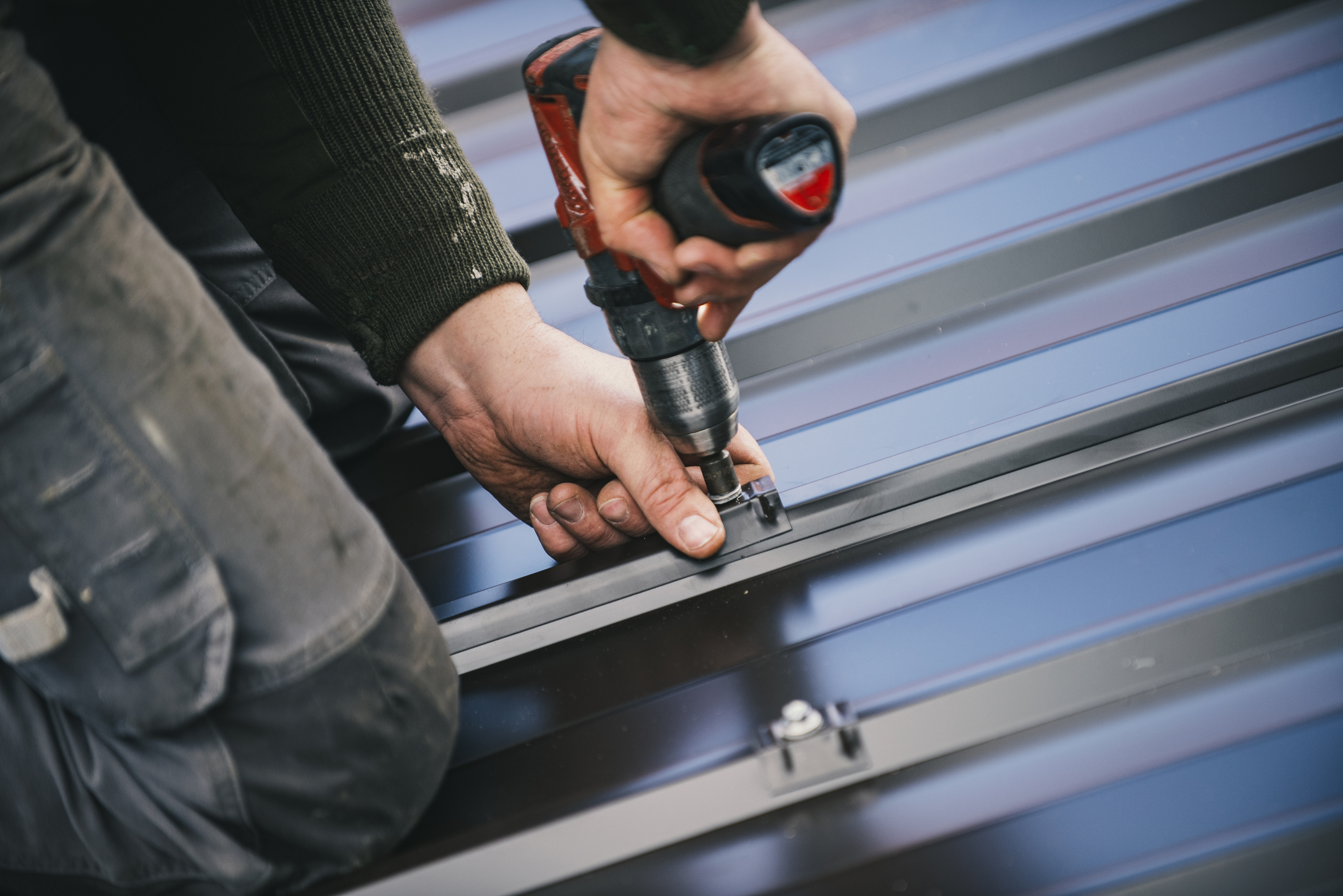
6. Roof Ventilation Upgrade
Moisture and heat are two factors that contribute to aging roof issues. Over time, moisture can bend or distort shingles. Significant moisture can also facilitate the growth of mold or rot. Heat makes materials more fragile over time through subtle expansion and cracking. In fact, asphalt shingles are particularly prone to heat damage.
You can combat these issues with proper roof ventilation. Upgrading these systems will protect your roof and postpone the need for a total replacement.
7. Solar Roof Panels
Solar panels are another way to protect your roof. These large panels can protect from heat damage by providing shade and coverage. This tip may save you more than other roofing solutions because of rebates and savings with your electrical company. Check with your electrical company to see if this solution makes sense.
Read more: The Best Roof Materials for Solar Panels
8. Reflective Roof Coating
Coatings can be another way to combat heat damage. When a roof absorbs sunlight, it heats up the shingles and other roofing elements. As discussed, prolonged exposure to heat can cause damage over time. Reflective roof coatings force sunlight to bounce away instead of being absorbed.
Reflective roof coatings can be easily sprayed on, even by a homeowner who wants to do it themselves. However, they typically leave a white coloring on the roof, so they aren’t compatible with all homeowners’ associations and may clash with your aesthetic preferences.
9. Algae and Moss Removal
Algae and moss growth can cause significant damage to a roof. Algae and moss are pretty heavy, which can cause a lot of strain on a roof. They also can weaken shingles, causing cracks, warping, and leaking. Another reason moss and algae are bad for your roof is the fact that they reduce oils in the shingles, making them prone to sun damage and weakening from exposure.
This strategy is most effective when done as soon as you notice the growth. If caught in time, the lasting damage due to strain may be minimal. Even if there is some damage that removal doesn’t fully solve, this process will buy time to implement other solutions. Algae and moss will likely grow back over time, so you’ll need to be prepared to continue mitigation efforts.
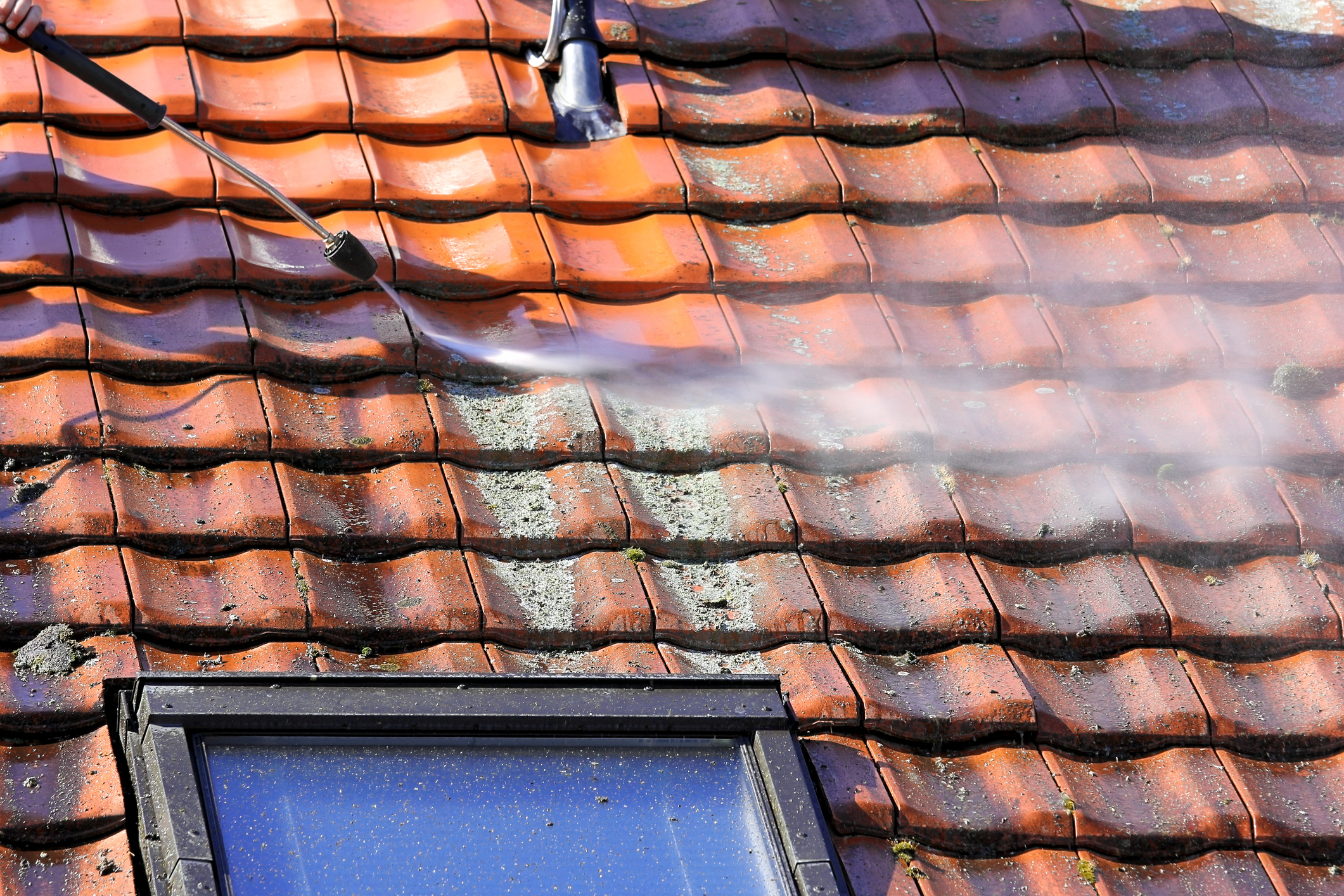
10. Ridge Cap Repair or Replacement
Seams and bends are the most vulnerable parts of a roof. The ridge—or the apex where two sides of a gabled roof come together—is typically the most fragile. Ridge caps are placed on this part of the roof to protect it. If it becomes worn or damaged, the ridge underneath may experience issues and even put extra pressure on other parts of the roof.
Compared to a total roof replacement, a ridge cap repair or replacement is an easy and cost-effective solution.
11. Alternative Materials
When it comes time to replace your roof, you may still be looking for alternative options that can prolong lifespan, cut costs, or increase sustainability. Here are some options you might want to consider:
- Synthetic slate tiles, which are more lightweight than other options
- Single-ply roofing, which is flexible and easy to install
- Green roofs, which last twice as long as traditional roofing
- Blue roofing, which stores and diverts water to prevent damage
- Recycled composite materials, which are more sustainable
Each of these options comes with unique benefits. Some may cost less upfront because they are easier to install. Some may cost more upfront, but save money over time by protecting the roof and extending its lifespan. Talk with your roofer about the best options for your house.
Does My Roof Need a Replacement?
Ultimately, roof replacement alternatives can only go so far. They may provide your roof several more years of life, but they won’t last forever. So, how do you know when it is finally time to replace a roof? You’ll want to consider these points to determine whether your roof can be repaired instead of replaced—or if there’s no other option.
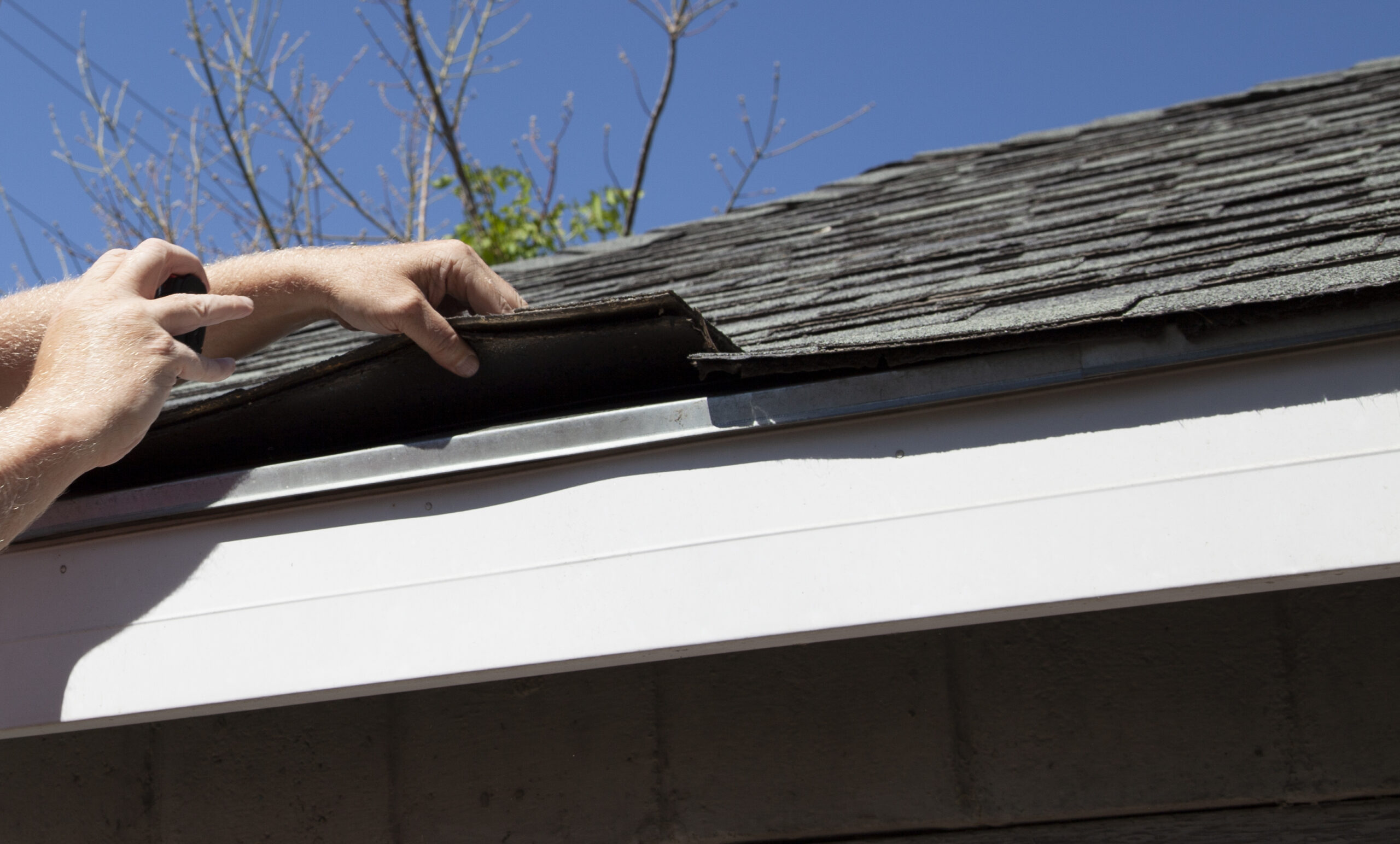
How Old Is My Roof?
A roof at the end of its lifespan may not be salvageable. However, you can extend the life of your roof by protecting it before it’s too far gone. If your roof is damaged but is still a few years from its expected expiration date, consider alternatives such as protective coatings.
How Extensive Is the Damage?
Localized damage is easier to fix than damage that spreads across the entire roof. If your roof has one problem area, a repair may make more sense than a total replacement. If the problems are widespread but mild (such as surface-level moss growth), you may also be able to restore your roof to extend its life.
Have Preservation Options Been Exhausted?
Preservation options can only be engaged for so long before a roof ultimately fails. If you tried options that haven’t worked, you may have to invest in a replacement. Additionally, preservation options that once worked well may simply run out of benefit.
Can I Afford a Total Replacement?
Money is one of the biggest deciding factors in home repairs. If you can’t afford a total replacement, alternatives can give you time to pull together the funds. Sometimes, even if you can afford a total replacement, a repair may be more cost-effective. Examine your budget to help you decide what to do.
How Long Will I Stay in this House?
The value of a home and how long you will live in it also play a role in whether a full replacement is the right choice for you. A new roof is expensive, but it gives a home better resale value and may be worth the expense. If you plan on living in your home for many more years, prolonging your roof’s life through interventions may be more cost-effective in the long term.
How Do I Decide What to Do?
If your roof is moderately aged or experiencing small issues, you likely don’t need a total replacement. You can extend the life of your roof with other methods, such as Roof Maxx.
Our eco-friendly product protects your roof from further damage and extends its life so you get more out of your investment. It also keeps old roofing material out of landfills for as long as possible, reducing overall waste over time. Just see what our customers have to say.
If you need to extend the life of your roof, speak with one of our experts today! You can schedule an inspection to see if your house is a good candidate for our protective sealant.
